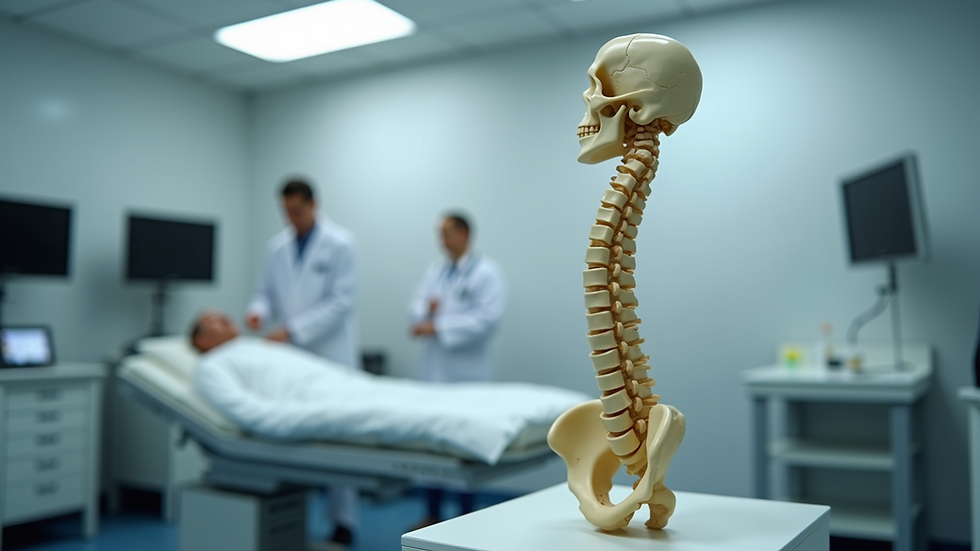“Chiropractic Care for Sciatica: Relieving Pain and Restoring Function”
- Rin Spine & Aesthetics

- Oct 12, 2023
- 2 min read
Updated: May 26, 2025

Understanding Sciatica
What is Sciatica?
Sciatica is a condition characterized by pain that radiates along the path of the sciatic nerve, which runs from the lower back through the hips and buttocks and down each leg. It typically affects only one side of the body and is caused by irritation, inflammation, or compression of the sciatic nerve.
Common Causes of Sciatica
Herniated or Bulging Disc: The most common cause, where spinal discs press on the sciatic nerve.
Spinal Stenosis: Narrowing of the spinal canal putting pressure on the nerve.
Piriformis Syndrome: The piriformis muscle in the buttocks irritates the nerve.
Sacroiliac Joint Dysfunction: Misalignment or inflammation affecting the sciatic nerve.
Degenerative Disc Disease or Osteoarthritis: Can lead to nerve impingement.
Trauma or Poor Posture: Leading to spinal misalignments and nerve irritation.
Recognizing the Symptoms
Key Symptoms of Sciatica
Sciatica symptoms can vary in intensity, from mild discomfort to sharp, debilitating pain.
Pain Locations and Types
Radiating pain from the lower back or buttocks down one leg
Burning, tingling, or numbness along the sciatic nerve path
Muscle weakness in the affected leg or foot
Increased pain when sitting, sneezing, or coughing
Pain that worsens with prolonged standing or walking
The Role of Chiropractic Care
How Chiropractic Treatment Works
Chiropractors identify the root cause of sciatic nerve irritation—whether it’s spinal misalignment, disc issues, or muscular tension—and use gentle, targeted adjustments to relieve pressure on the nerve and promote natural healing.
Techniques Used in Chiropractic Care
Spinal Adjustments: Realign vertebrae to relieve nerve compression.
Pelvic and Sacral Manipulation: Address misalignments contributing to sciatic pain.
Flexion-Distraction Therapy: A gentle, non-thrusting technique for herniated discs.
Trigger Point Therapy and Soft Tissue Work: Targets muscle tension in the lower back and glutes.
Rehabilitative Exercises: Strengthen core and pelvic muscles to prevent recurrence.
Postural Coaching: Reduces stress on the spine and nerve roots.
Evidence Supporting Chiropractic Treatment
Research Findings on Chiropractic and Sciatica
Numerous studies have demonstrated that chiropractic adjustments can reduce sciatic pain and improve mobility. A study published in the Journal of Manipulative and Physiological Therapeutics showed that chiropractic care was more effective than bed rest or physical therapy alone for certain types of sciatic pain, especially when related to disc problems.
Benefits of Chiropractic Care for Sciatica
Pain Relief and Functional Improvement
Chiropractic care addresses both the symptoms and the underlying cause of sciatica, promoting holistic and lasting recovery.
Long-Term Benefits of Chiropractic Care
Reduced inflammation and nerve pressure
Improved spinal alignment and mobility
Increased muscle support around the spine
Enhanced posture and body mechanics
Decreased risk of recurring sciatic episodes
When to Seek Professional Help
Consulting a Chiropractor
If you experience persistent leg pain, numbness, tingling, or lower back discomfort that travels down your leg, it's time to consult a chiropractor. Early intervention can prevent the condition from worsening and reduce the need for invasive procedures.



Comments